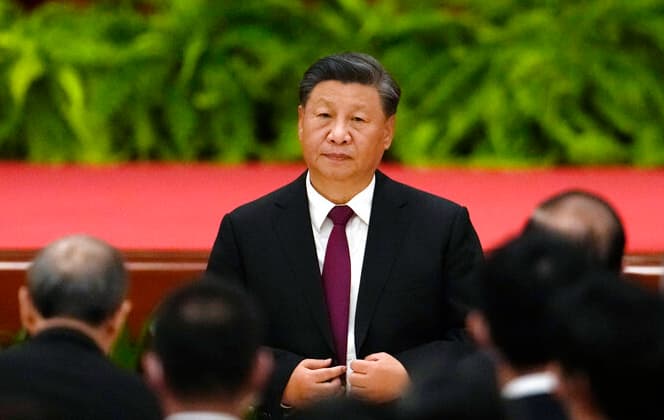Can Biden Deter China From Entering the War for Ukraine?
Not by using the Chips Act to force suppliers to provide child care to their employees.

In the coming days, the Chinese communist tyrant Xi Jinping will decide whether to begin arming Russia in its war on Ukraine. That is at least the assessment of the American intelligence community, according to the CIA director, William Burns.
On Sunday he told CBS’s “Face the Nation” that China’s leadership was “trying to weigh the consequences” of providing Russia with lethal equipment for the war that President Putin launched a year ago.
The Biden administration’s strategy is to deter President Xi from arming its Russian ally by disclosing intelligence on its deliberations in real time. On Sunday, NBC News reported that the assessment that China is weighing the provision of arms to Russia was based on overheard conversations of Russian officials.
This tactic is reminiscent of what America did in the runup to Russia’s invasion of Ukraine last year. The White House publicized a series of intelligence reports on Russian preparations for the invasion before it started in the hopes of deterring Moscow.
It didn’t work with Russia. So the question is glaring today in respect of why Mr. Burns and others in the Biden administration believe this approach would deter China?
A senior adviser to Secretary Pompeo, Mary Kissel, tells me that she thinks that releasing the intelligence was good because it educates the public on the China threat. That said, Ms. Kissel adds that disclosing intelligence should not be confused with deterrence.
Ms. Kissel, who is now an executive vice president for Stephens Inc., says the smart thing for the Biden administration to do would be to prepare to levy secondary sanctions that would hit both Chinese institutions and foreign entities that did business with them.
“It’s the major banks that would want to avoid that, particularly at a time when their domestic economy is in distress,” she tells me. “The regime wants foreign financial firms to partner with domestic financial institutions now.”
A potential problem for America and its allies is that China’s economy is still intertwined with the West. Everything from rare earth metals to important pharmaceuticals are purchased from China and its allies and make up a crucial link in supply chains for American corporations.
Both Presidents Trump and Biden have taken some steps to create new supply chains for critical sectors that bypass China. One example is the recent law, known as the Chips Act, which incentivizes American companies to manufacture semiconductors in America.
Yet the Biden administration’s new rules for doling out the nearly $40 billion in Chips Act funding and loans has several strings attached that have nothing to do with economic competition with China. These include providing affordable childcare for employees and limiting stock buybacks for company executives.
If China does end up arming Russia’s war in Ukraine, President Biden and his Cabinet will be left to ruminate on why President Xi was not deterred from entering the fray. One reason is likely the confused implementation of a law that was supposed to liberate America’s economy from China’s.

